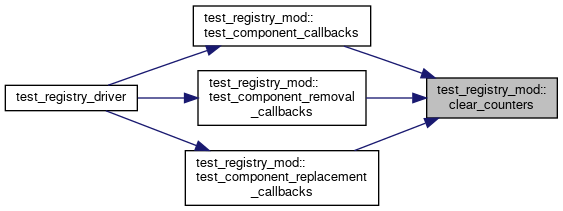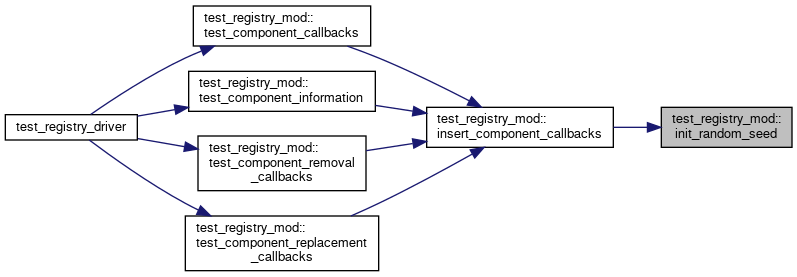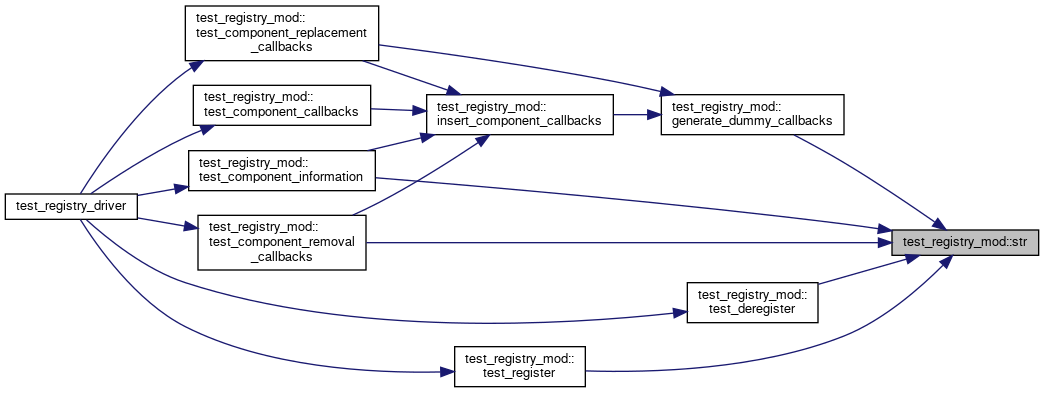Functions/Subroutines | |
| subroutine | test_register () |
| subroutine | test_deregister () |
| subroutine | test_component_information () |
| subroutine | test_component_removal_callbacks () |
| subroutine | test_component_callbacks () |
| subroutine | test_component_replacement_callbacks () |
| integer function | calculate_remaining_calls (orig_value, a, b) |
| subroutine | insert_component_callbacks (init_callbacks, timestep_callbacks, consolidation_callbacks, modelDump_callbacks, finalisation_callbacks) |
| subroutine | generate_dummy_callbacks (init_callbacks, timestep_callbacks, consolidation_callbacks, modelDump_callbacks, finalisation_callbacks) |
| subroutine | internal_test_init (current_state) |
| subroutine | internal_test_timestep (current_state) |
| subroutine | internal_test_consolidation (current_state) |
| subroutine | internal_test_modeldump (current_state) |
| subroutine | internal_test_finalisation (current_state) |
| character(len=15) function | str (k) |
| subroutine | init_random_seed () |
| subroutine | clear_counters () |
Variables | |
| integer | init_calls = 0 |
| integer | timestep_calls = 0 |
| integer | consolidation_calls = 0 |
| integer | modeldump_calls = 0 |
| integer | finalisation_calls = 0 |
Function/Subroutine Documentation
◆ calculate_remaining_calls()
| integer function test_registry_mod::calculate_remaining_calls | ( | integer, intent(in) | orig_value, |
| integer, intent(in) | a, | ||
| integer, intent(in) | b | ||
| ) |
◆ clear_counters()
| subroutine test_registry_mod::clear_counters |
◆ generate_dummy_callbacks()
| subroutine test_registry_mod::generate_dummy_callbacks | ( | integer, intent(in) | init_callbacks, |
| integer, intent(in) | timestep_callbacks, | ||
| integer, intent(in) | consolidation_callbacks, | ||
| integer, intent(in) | modelDump_callbacks, | ||
| integer, intent(in) | finalisation_callbacks | ||
| ) |
Definition at line 247 of file test_registry.F90.
Here is the call graph for this function:
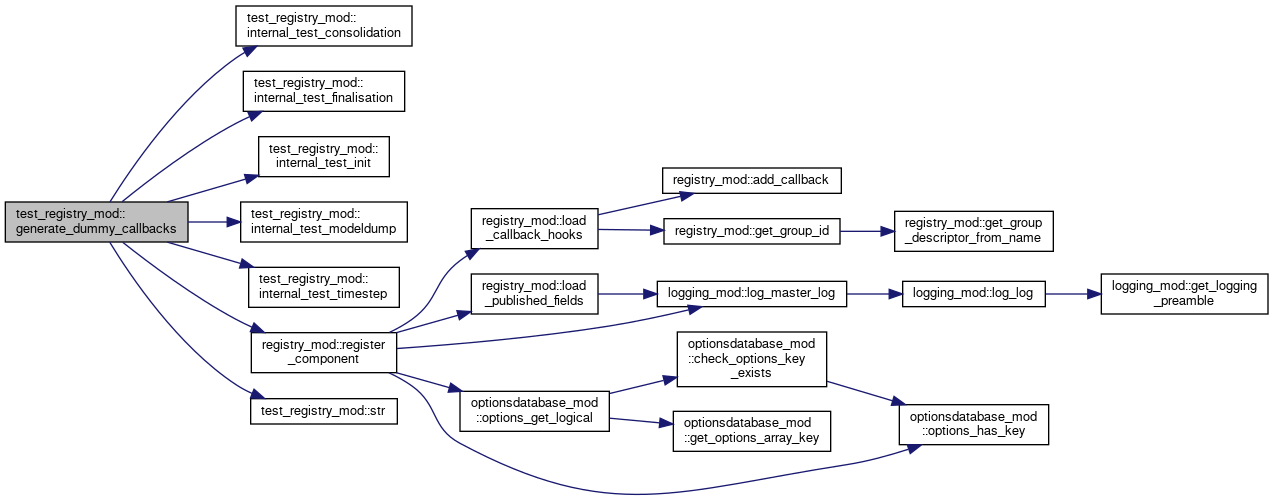
Here is the caller graph for this function:

◆ init_random_seed()
| subroutine test_registry_mod::init_random_seed |
◆ insert_component_callbacks()
| subroutine test_registry_mod::insert_component_callbacks | ( | integer, intent(out) | init_callbacks, |
| integer, intent(out) | timestep_callbacks, | ||
| integer, intent(out) | consolidation_callbacks, | ||
| integer, intent(out) | modelDump_callbacks, | ||
| integer, intent(out) | finalisation_callbacks | ||
| ) |
Definition at line 222 of file test_registry.F90.
Here is the call graph for this function:

Here is the caller graph for this function:
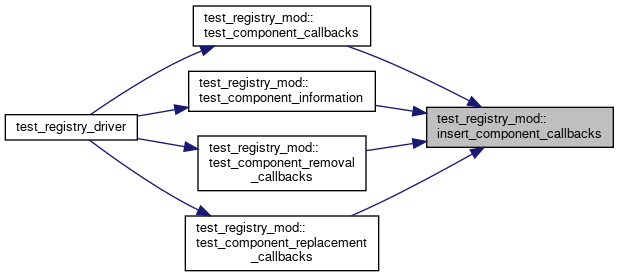
◆ internal_test_consolidation()
| subroutine test_registry_mod::internal_test_consolidation | ( | type(model_state_type), intent(inout), target | current_state | ) |
◆ internal_test_finalisation()
| subroutine test_registry_mod::internal_test_finalisation | ( | type(model_state_type), intent(inout), target | current_state | ) |
◆ internal_test_init()
| subroutine test_registry_mod::internal_test_init | ( | type(model_state_type), intent(inout), target | current_state | ) |
◆ internal_test_modeldump()
| subroutine test_registry_mod::internal_test_modeldump | ( | type(model_state_type), intent(inout), target | current_state | ) |
◆ internal_test_timestep()
| subroutine test_registry_mod::internal_test_timestep | ( | type(model_state_type), intent(inout), target | current_state | ) |
◆ str()
| character(len=15) function test_registry_mod::str | ( | integer, intent(in) | k | ) |
◆ test_component_callbacks()
| subroutine test_registry_mod::test_component_callbacks |
Definition at line 155 of file test_registry.F90.
157 integer :: init_callbacks, timestep_callbacks, consolidation_callbacks, modeldump_callbacks, finalisation_callbacks
Here is the call graph for this function:
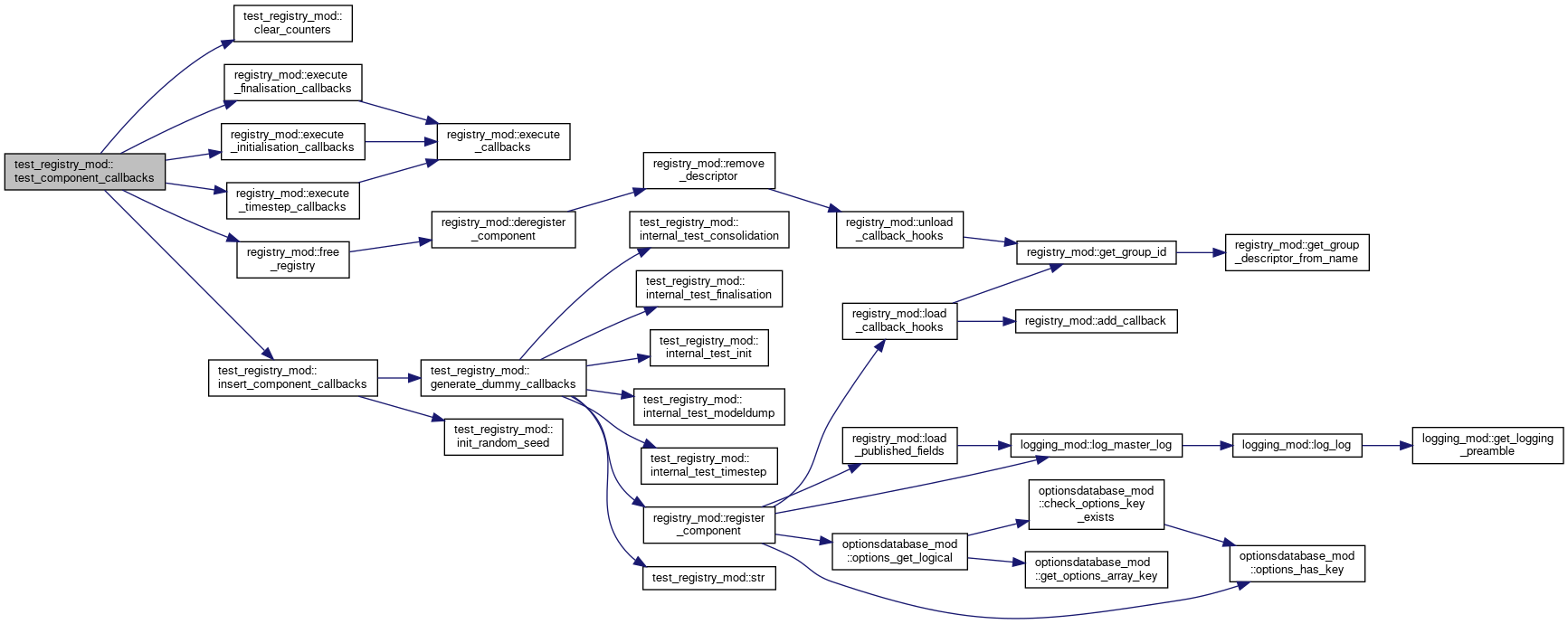
Here is the caller graph for this function:

◆ test_component_information()
| subroutine test_registry_mod::test_component_information |
Definition at line 78 of file test_registry.F90.
91 call assert_true(associated(data), "Testing there is some component information if less than 100")
95 call assert_equals(merge(.true., .false., i .le. init_callbacks), associated(data%initialisation), &
97 call assert_equals(merge(.true., .false., i .le. timestep_callbacks), associated(data%timestep), &
99 call assert_equals(merge(.true., .false., i .le. consolidation_callbacks), associated(data%consolidation), &
101 call assert_equals(merge(.true., .false., i .le. modeldump_callbacks), associated(data%modeldump), &
103 call assert_equals(merge(.true., .false., i .le. finalisation_callbacks), associated(data%finalisation), &
Here is the call graph for this function:

Here is the caller graph for this function:

◆ test_component_removal_callbacks()
| subroutine test_registry_mod::test_component_removal_callbacks |
Definition at line 115 of file test_registry.F90.
130 ! In reference to the 25-50 inclusive removals, recalculate the expected number of each stage's callback
145 call assert_equals(init_callbacks, init_calls, "Number of initialisation call-backs post removal")
146 call assert_equals(timestep_callbacks, timestep_calls, "Number of timestep call-backs post removal")
147 call assert_equals(consolidation_callbacks, consolidation_calls, "Number of consolidation call-backs post removal")
148 call assert_equals(modeldump_callbacks, modeldump_calls, "Number of model dump call-backs post removal")
Here is the call graph for this function:
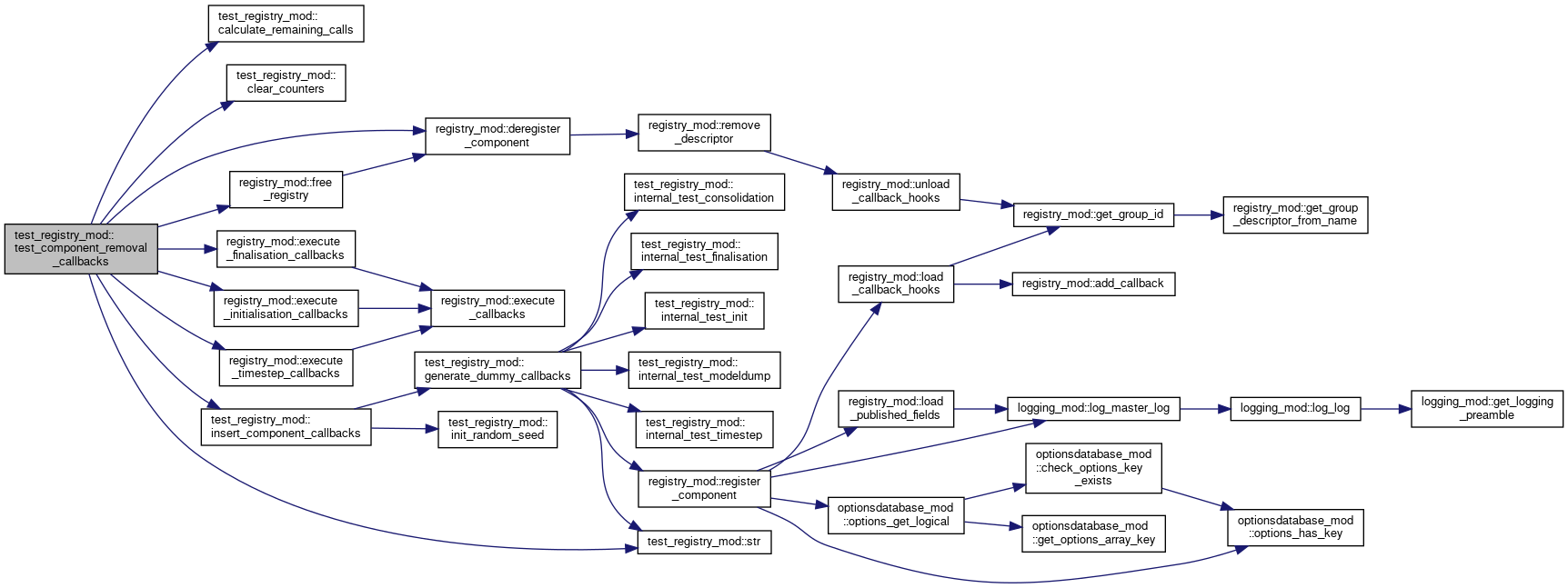
Here is the caller graph for this function:

◆ test_component_replacement_callbacks()
| subroutine test_registry_mod::test_component_replacement_callbacks |
Definition at line 181 of file test_registry.F90.
183 integer :: init_callbacks, timestep_callbacks, consolidation_callbacks, modeldump_callbacks, finalisation_callbacks
201 call assert_equals(init_callbacks, init_calls, "Number of initialisation call-backs post replacement")
202 call assert_equals(timestep_callbacks, timestep_calls, "Number of timestep call-backs post replacement")
203 call assert_equals(consolidation_callbacks, consolidation_calls, "Number of consolidation call-backs post replacement")
Here is the call graph for this function:
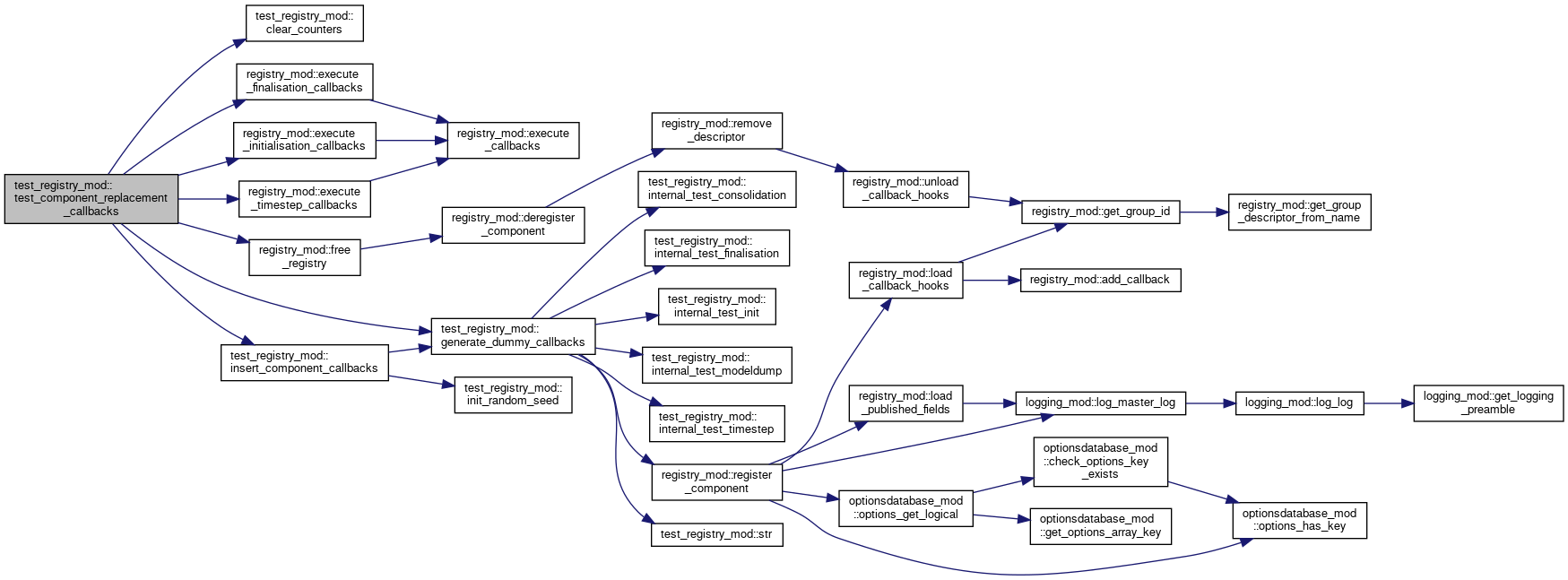
Here is the caller graph for this function:

◆ test_deregister()
| subroutine test_registry_mod::test_deregister |
Definition at line 53 of file test_registry.F90.
Here is the call graph for this function:

Here is the caller graph for this function:

◆ test_register()
| subroutine test_registry_mod::test_register |
Definition at line 22 of file test_registry.F90.
Here is the call graph for this function:

Here is the caller graph for this function:

Variable Documentation
◆ consolidation_calls
| integer test_registry_mod::consolidation_calls = 0 |
Definition at line 15 of file test_registry.F90.
◆ finalisation_calls
| integer test_registry_mod::finalisation_calls = 0 |
Definition at line 17 of file test_registry.F90.
◆ init_calls
| integer test_registry_mod::init_calls = 0 |
Definition at line 13 of file test_registry.F90.
◆ modeldump_calls
| integer test_registry_mod::modeldump_calls = 0 |
Definition at line 16 of file test_registry.F90.
◆ timestep_calls
| integer test_registry_mod::timestep_calls = 0 |
Definition at line 14 of file test_registry.F90.

